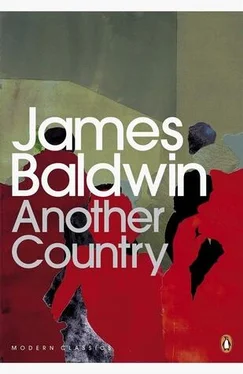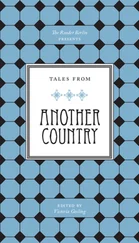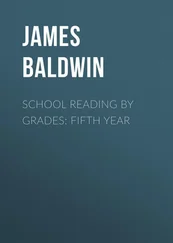“Ida, it was a dumb thing to say, and I’m sorry, all right . I didn’t mean what you thought I meant. I wasn’t trying to put you down.”
“Yes, you did. You meant exactly what I thought you meant. And you know why? Because you can’t help it, that’s why. Can’t none of you white boys help it. Every damn one of your sad-ass white chicks think they got a cunt for peeing through, and they don’t piss nothing but the best ginger ale, and if it wasn’t for the spooks wouldn’t a damn one of you white cock suckers ever get laid. That’s right . You are a fucked-up group of people. You hear me? A fucked -up group of people.”
“All right,” he said, wearily, “so we’re a fucked-up group of people. So shut up. We’re in enough trouble here, as it is.”
And they were, because the landlord and the neighbors and the cop on the corner disapproved of Ida’s presence. But it was not the most tactful thing he could have said at that moment.
She said, with a contrition absolutely false and murderous, “That’s true. I forgot.” She turned from him into the kitchen again, reached up in the cupboard and hurled all of his dishes, of which, thank heaven, there were not many, to the floor. “I just think I’ll give them something to complain about,” she said. There were only two glasses and she smashed these against the refrigerator. Vivaldo had placed himself against the record player, and, as Ida stalked the kitchen, water standing in her eyes, he began to laugh. She rushed at him, slapping and clawing, and he held her off with one hand, still laughing. His belly hurt. Other people in the building were pounding on their pipes and on the walls and on the ceiling, but he could not stop laughing. He ended up on the floor, on his back, howling, and finally, Ida, unwillingly, began to laugh, too. “Get up off the floor, you fool. Lord, what a fool you are.”
“I’m just a fucked-up group of people,” he said. “Lord, have mercy on me.” Ida laughed, helplessly, and he pulled her down on top of him. “Have mercy on me, baby,” he said. “Have mercy.” The pounding continued, and he said, “There sure are a fucked-up group of people in this house, they won’t even let you make love in peace.”
Now, Cass returned, with her hair recombed and new make-up on and with her eyes bright and dry. She seated herself in the booth again and picked up her drink. “I’m ready whenever you are,” she said. Then, “Thank you, Vivaldo. If I couldn’t have found a friend to talk to, I think I would have died.”
“You wouldn’t have,” he said, “but I know what you mean. Here’s to you, Cass.” And he raised his glass. It was twenty minutes to eight, but, now, he was afraid to call the restaurant. He would wait until he and Cass had separated.
“What are you going to do?” he asked.
“I don’t know. I think I may break — is it the sixth commandment? Adultery.”
“I mean, right now.”
“That’s what I thought you meant.”
They both laughed. Yet, it crossed his mind that she meant it. “Anyone I know?”
“Are you kidding? Just think of the people you know.” He smiled. “All right. But please don’t do anything silly, Cass.”
She looked down. “I don’t think I will,” she murmured. Then, “Let’s get the bill.”
They signaled the waiter, and paid him, and walked into the streets again. The sun was going down, but the heat had not lessened. The stone and steel and wood and brick and asphalt which had soaked in the heat all day would be giving it back all night. They walked two blocks, to the corner of Fifth Avenue, in silence; and in this silence something lived which made Vivaldo oddly reluctant to leave Cass alone.
The corner on which they stood was absolutely deserted, and there was very little traffic.
“Which way are you going?” he asked her.
She looked up and down the Avenue — up and down. From the direction of the park there came a green and yellow cab.
“I don’t know. But I think I’ll go to that movie.” The cab stopped, several blocks from them, waiting for a red light. Cass abruptly put up her hand.
Again, he volunteered. “Would you like me to come with you? I could act as your protection.”
She laughed. “No, Vivaldo, thank you. I don’t want to be protected any more.” And the cab swerved toward them. They both watched it approach, it slowed and stopped. He looked at her with his eyebrows very high.
“Well—” he said.
She opened the door and he held it. “Thank you, Vivaldo,” she said. “Thank you for everything. I’ll be in touch with you in a few days. Or call me, I’ll be home.”
“Okay, Cass.” He made a fist and touched her on the chin. “Be good.”
“You, too. Good-bye.” She got into the cab and he slammed the door. She leaned forward to the driver, the cab rolled forward, downtown. She turned back to wave at him and the cab turned west.
It was like waving good-bye to land: and she could not guess what might have befallen her when, and if, she ever saw land again.
At Twelfth Street and Seventh Avenue she made the driver carry her one block more, to the box office of the Loew’s Sheridan; then she paid him and walked out and actually climbed the stairs to the balcony of this hideous place of worship, and sat down. She lit a cigarette, glad of the darkness but not protected by it; and she watched the screen, but all she saw were the extraordinarily unconvincing wiggles of a girl whose name, incredibly enough, appeared to be Doris Day. She thought, irrelevantly, I never should come to movies, I can’t stand them, and then she began to cry. She wept looking straight ahead, this latter rain coming between her and James Cagney’s great, red face, which seemed, at least, thank heaven, to be beyond the possibilities of make-up. Then she looked at her watch, noting that it was exactly eight o’clock. Is that good or bad? she wondered idiotically — knowing, which was always part of her trouble, that she was being idiotic. My God, you’re thirty-four years old, go on downstairs and call him. But she forced herself to wait, wondering all the time if she were waiting too long or would be calling too early. Finally, during the heaviest of the wide screen’s technicolored stormy weather, she walked down the stairs and entered the phone booth. She dialed his number and got the answering service. She crawled back upstairs and found her seat again.
But she could not bear the movie, which showed no signs of ever ending. At nine o’clock, she walked downstairs again, intending to walk and have a drink somewhere and go home. Home. And she dialed the number again.
It rang once, twice; then the receiver was picked up; there was a silence. Then, in an aggressive drawl,
“Hello?”
She caught her breath.
“Hello?”
“Hello. Eric?”
“Yes.”
“Well, it’s me. Cass.”
“Oh,” and then, quickly, “How are you, Cass, it’s good of you to call me. I’ve been sitting here trying to read this play and going out of my mind and feeling suicidal.”
“I imagine,” she said, “that you may have been expecting this call.” For never let it be said, she thought, now really in the teeth of irreality and anguish, that I don’t lay my cards on the table.
“What did you say, Cass?” But she knew, from the rhythm of his question, that he had understood her.
“I said, ‘You may have been expecting this call.’”
After a moment, he said. “Yes. In a way.” Then, “Where are you, Cass?”
“I’m around the corner from your house. Can I come up?”
“Please do.”
“All right. I’ll be there in about five minutes.”
“Okay. Oh, Cass—”
Читать дальше












